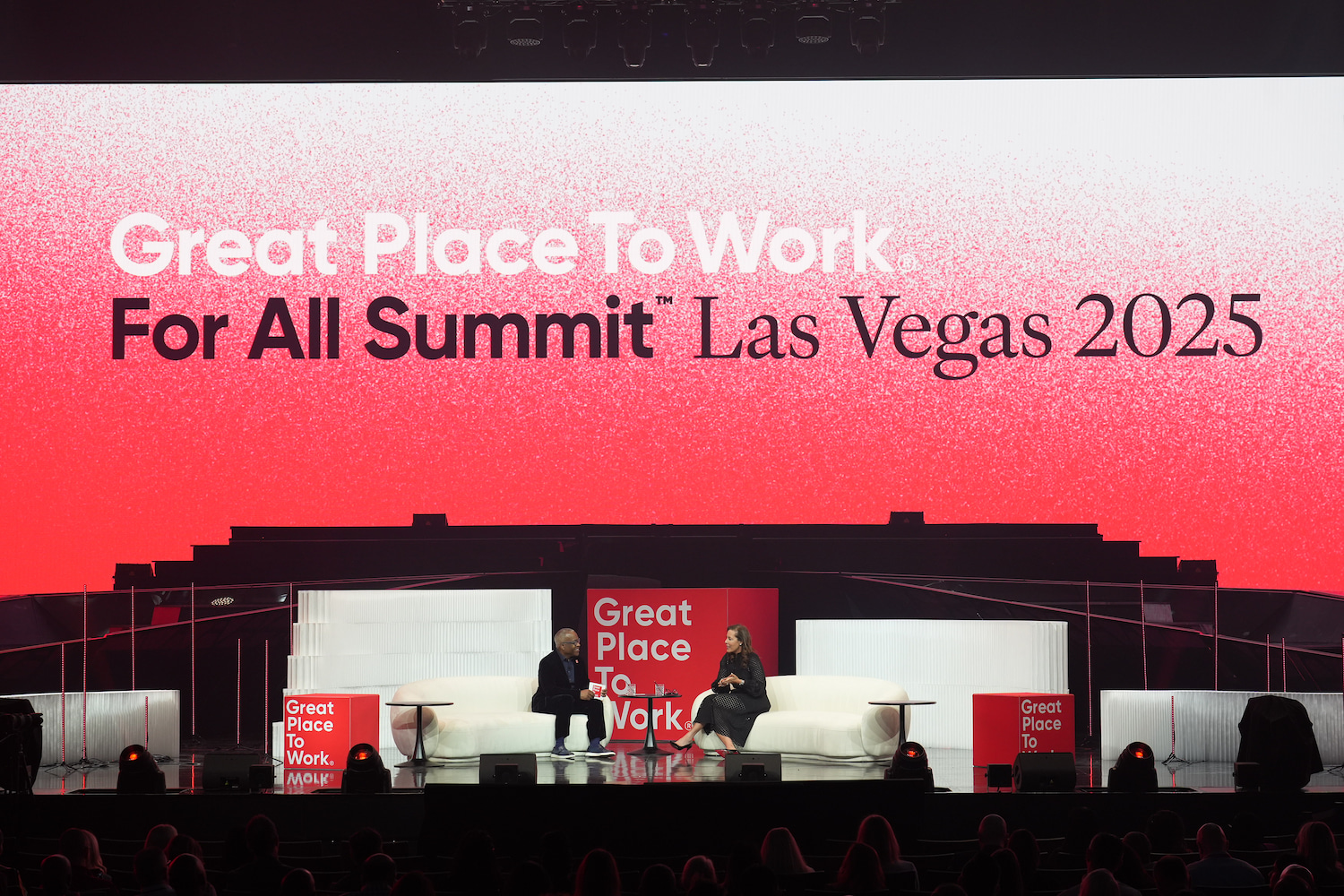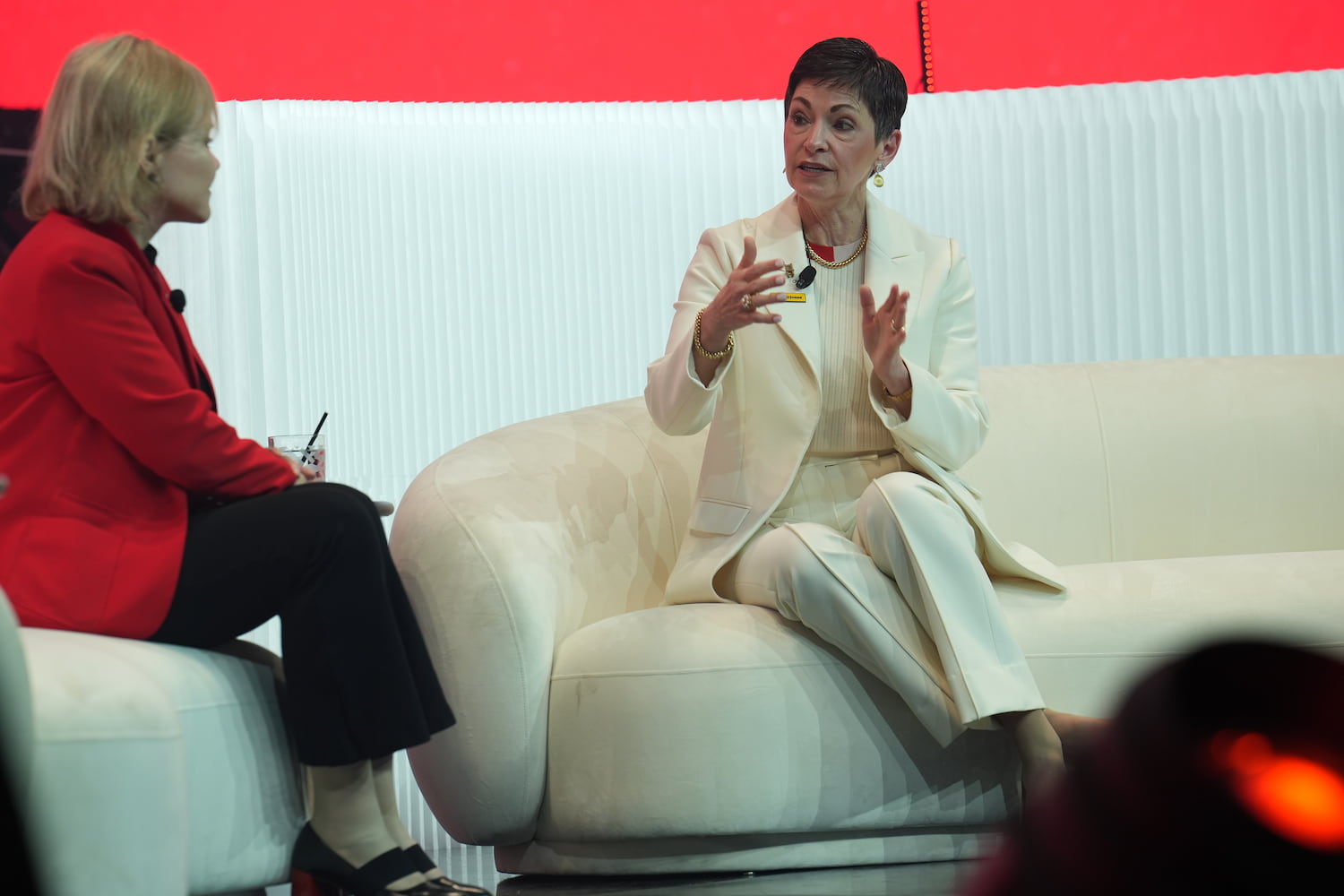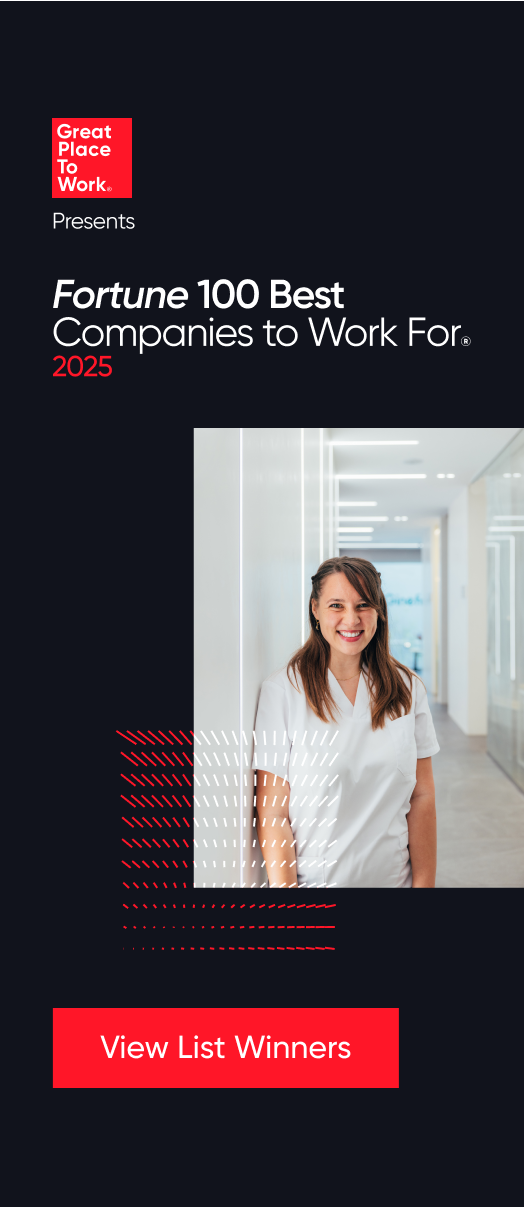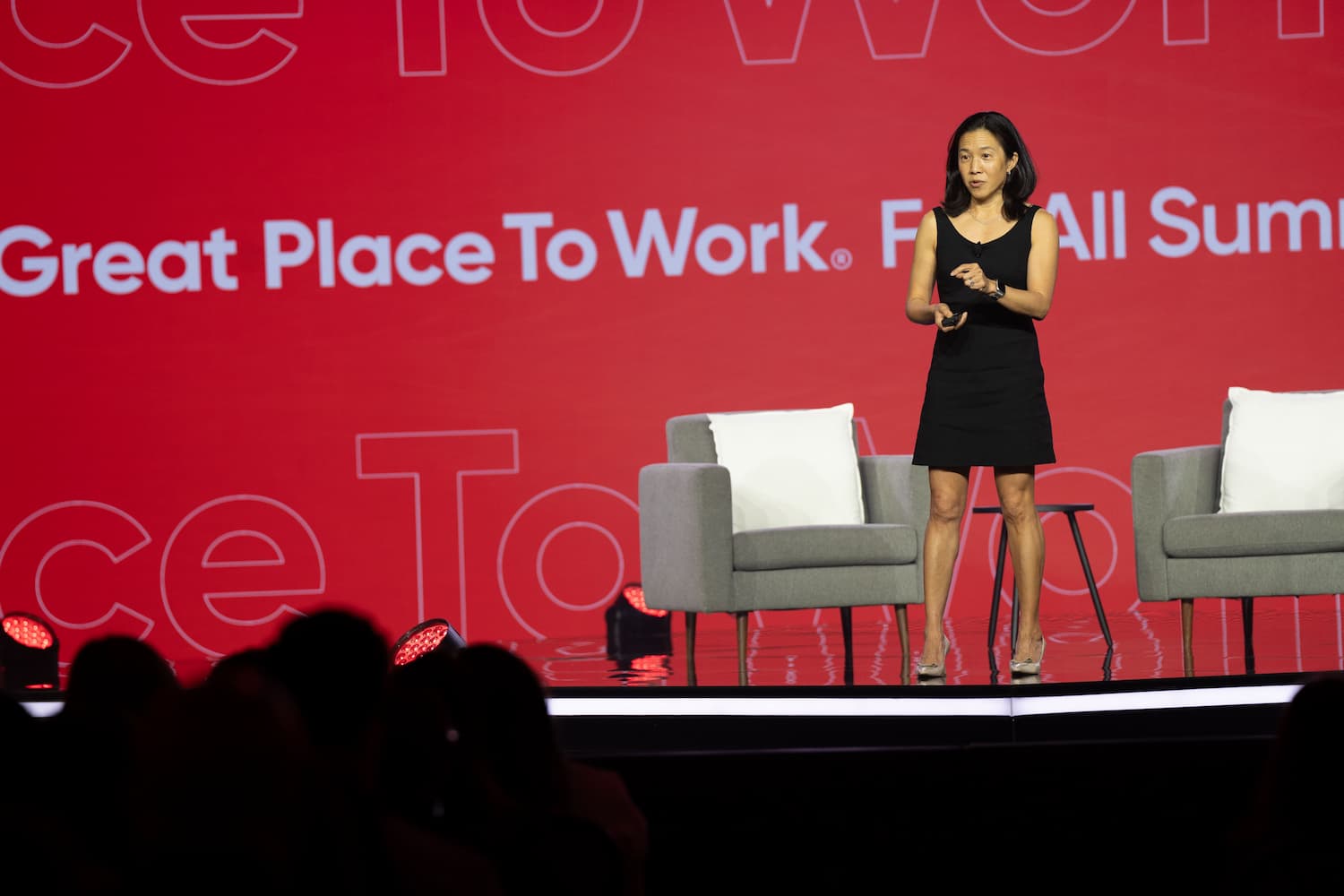AI (Artificial Intelligence), Belonging
Michael C. Bush, CEO of Great Place To Work, started the conversation with leaders about how investing in people offers answers for a complicated business landscape.
If there’s one thing business leaders should do in this moment, it is to “zoom out.”
That’s the message from Michael C. Bush, CEO of Great Place To Work in his keynote to start the For All Summit™ in Las Vegas. His advice is based in brain science, and how leaders can get fixated and miss the bigger picture.
“Right now the whole world seems to be zooming in — on what we fear, what divides us,” Bush says. “Businesses focus on pieces: AI, profit, the topline.”
A myopic view misses crucial context that underpins free trade, a fair exchange where both sides of the deal have something to gain.
The For All Summit is highlighting leaders who don’t accept this as the only way of doing business. And Bush’s message is pointed: “The purpose of business is to improve life for all people.”
Shareholders still reap the immense benefits of commerce, but so do employees, customers, and societies.
Can this approach compare with a more greed-based approach? Stories like Hilton say that creating a great workplace leads to impressive business results. From 2014 to 2024, the market cap for Hilton doubled. At the same time Hilton steadily rose on the Fortune 100 Best Companies to Work For® List, placing No. 1 for 2024 and 2025.
The secret ingredient? Trust.
“Trust is the universal currency,” Bush says. “Trust is how people who believe very different things can work together.”
How Hilton builds trust
How does Hilton build trust?
Laura Fuentes, EVP, chief human resources officer and head of Hilton supply management, talked about the importance of listening to employee voices – and how their feedback is changing how the company operates.
“In a way, we have a global listening crisis right now,” Fuentes says of the political and economic upheaval around the world driving lower levels of trust in institutions. To combat this, she asks herself and her team to act as “chief listening officers.”
What does that look like? Listening twice as much as speaking. “If I find myself talking too much, I’m not doing my job well,” Fuentes says.
The most important step might be the one that comes after a listening session. “You need to have a tight listen/act ratio,” Fuentes says. “We want to show that stories and feedback drive action.”
One example is how an employee shared their personal story with Fuentes about how a personal tragedy impacted his life, both at work and beyond, and the ways that Hilton both supported him and fell short. In response, Hilton launched a Crisis Concierge to support employees facing an emergency or trauma.
“Listening is your superpower,” Fuentes says.
How trust matters to investors
Hilton’s financial performance hasn’t gone unnoticed by financial markets. The hotel chain is the most profitable investment ever made by Blackstone, the private equity group with $1.1 trillion in assets and managing a portfolio of 250 companies.
Investors like Blackstone care deeply about employee engagement and the level of trust across a workforce.
“Numbers follow people,” says Courtney della Cava, senior managing director and global head of portfolio talent & organizational performance at Blackstone. In her role, she focuses on ensuring the right management team is in place to drive value at the companies in which Blackstone invests.
“The No. 1 thing we can get right is leadership,” she says. Her remit is to look for learners, people with self-awareness and the grit to persevere. “We worry when somebody has all the answers,” she says. The No. 1 indicator of a leader with a learning mindset? They can tell you about a mistake they made, and how they responded.
Blackstone absolutely considers a chief human resources officer (CHRO) to be an essential part of the leadership team that drives success.
And Great Place To Work data plays a crucial role in helping these top leaders understand the preparedness of their workforce.
At Synchrony, No. 2 on the Fortune 100 Best Companies to Work For list in 2025, the board of directors is heavily engaged with employee survey data through Great Place To Work. “It’s invaluable,” says Laurel Richie, a board member at the financial services leader.
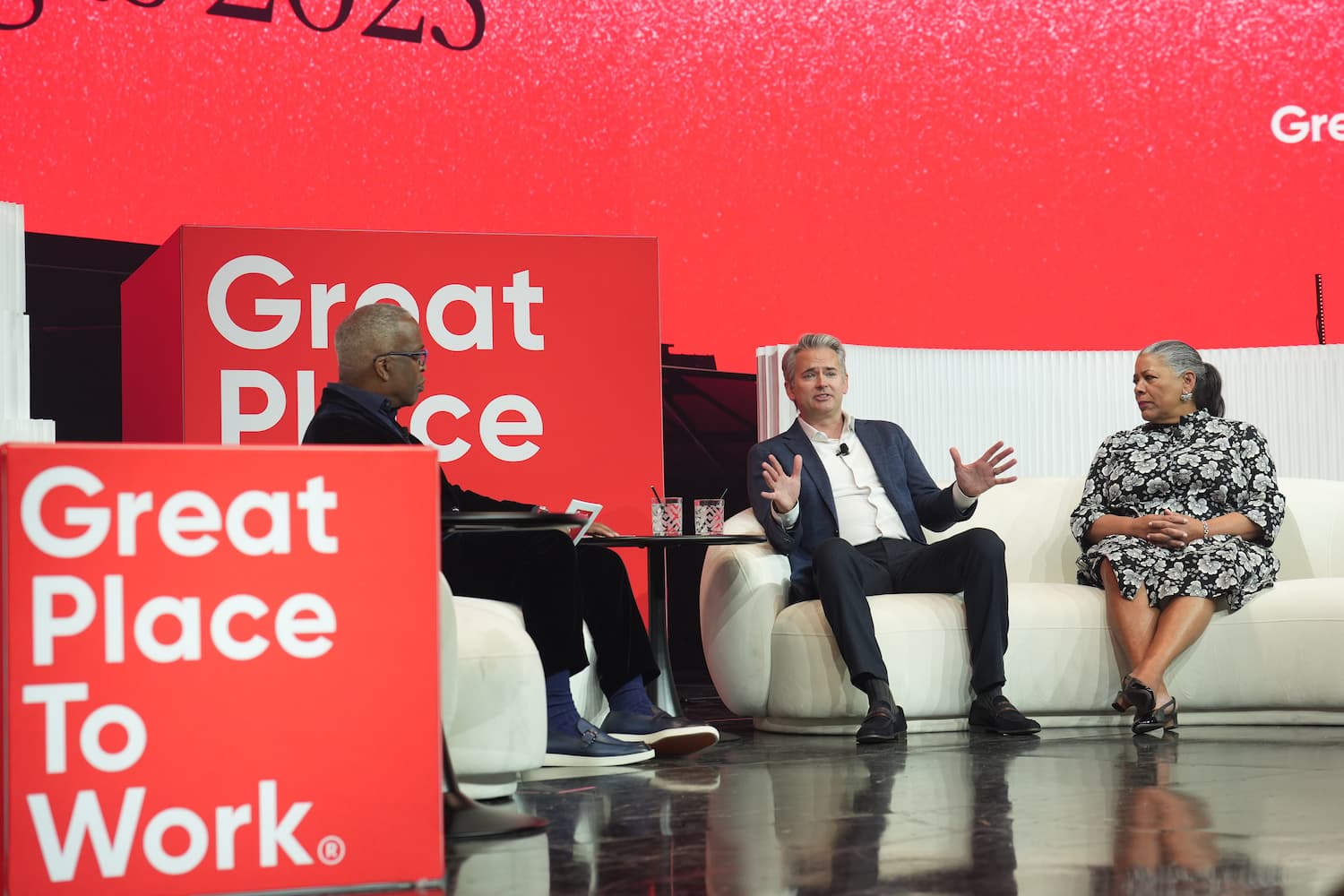
Michael C. Bush interviews Brian Doubles, CEO of Synchrony and Laurel Richie, an independent member of Synchrony's board.
“You read the report and you look at data: 90% of employees feel heard,” she says. Another metric she cares about: “90% of employees feel their manager seeks their input.”
This data is a leading indicator that Synchrony is on the right track. “That’s what stood out to me and gives me confidence that Synchrony is on a path of continued growth,” Richie says.
Opening doors to opportunity with trust
A foundation of trust is what unlocks potential for companies, a point that was driven home by Anirudh Devgan, PhD., CEO of Cadence.
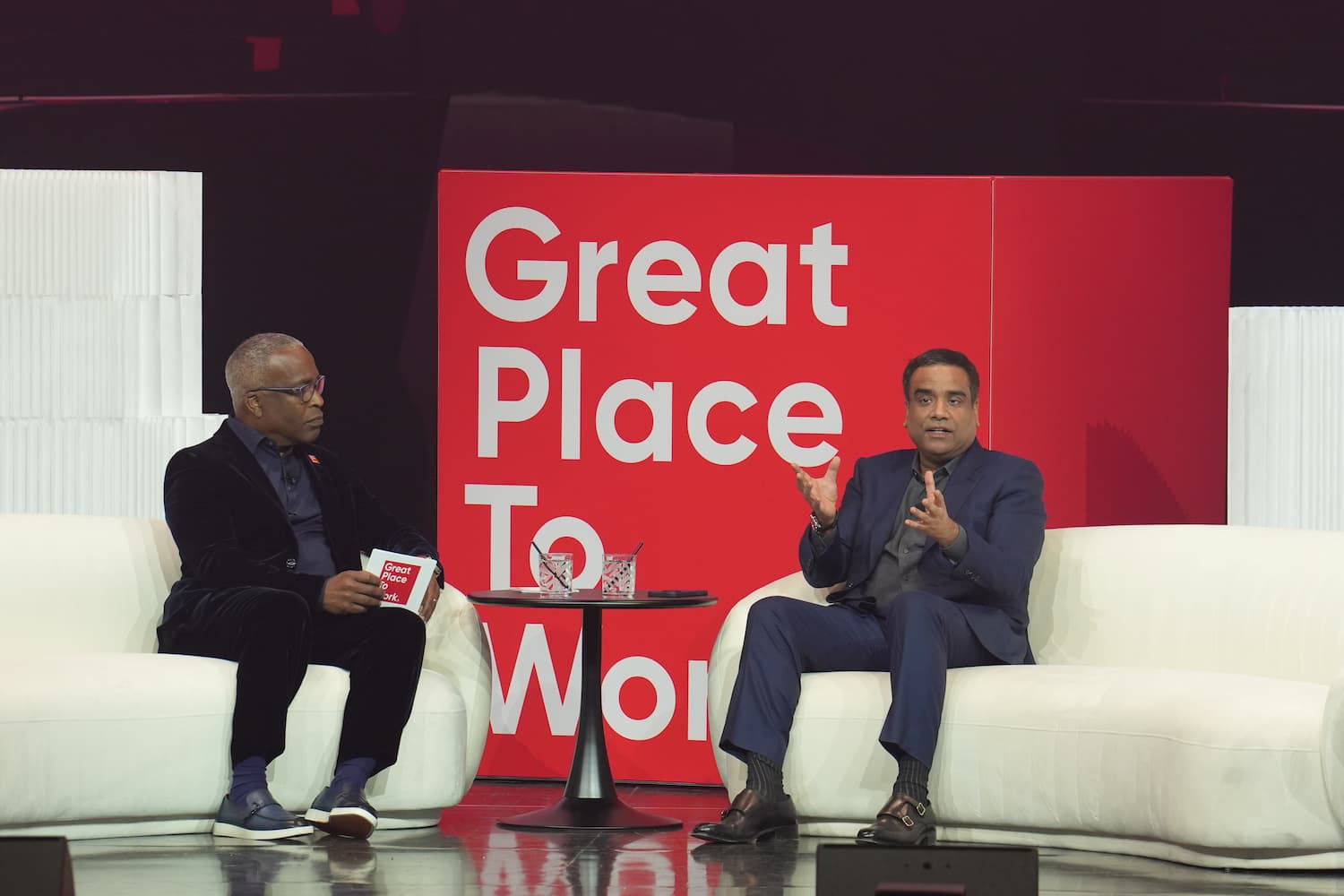
Michael C. Bush interviews Anirudh Devgan, CEO at Cadence, at the For All Summit in Las Vegas.
“Culture is super critical,” he shared with the Summit audience. “Everyone says they are customer focused — but if you don’t have the right team and the right technology, you won’t have the right customers.”
For Cadence, building a high-performance culture has three layers. At the foundation is trust and integrity. On top of that are the opportunities offered to every employee, regardless of who they are or what they do. From those layers of trust and opportunity is a meritocracy that drives excellence across the organization.
“Opportunity for all is a competitive advantage to get the best talent,” Devgan says. “If we build a culture where we attract the best people, we will perform better for our customers.”
For these leaders, this is a better way to do business.
“We are not doing it for charitable purposes,” Devgan says. “We are a great place to work because it helps our business.”
But don’t take these leaders’ word for it. Just check their financial performance, and the performance other Fortune 100 Best Companies to Work For.
Join the livestream of the 2025 For All Summit mainstage, or join us next year for our premier leadership event.



